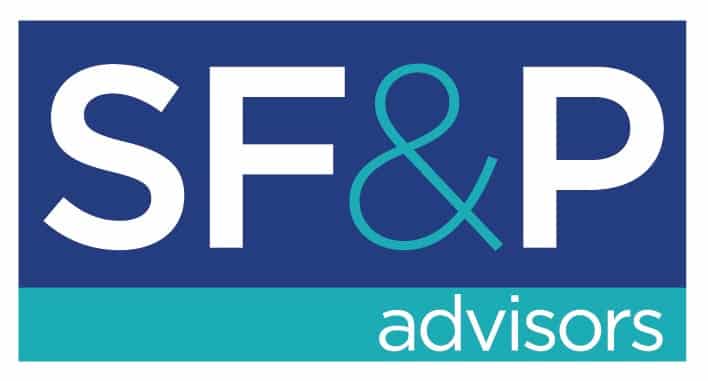“Ethical company” almost sounds like an oxymoron these days (insert “we live a society” meme here).
With so many large-scale scandals making the news every few years concerning companies taking advantage of the vulnerable to increase profit margins, it’s understandable that many of us out there have become quite cynical about the intentions of many of the companies out there today and their data ethics. Even Patagonia—a company that I respect immensely and consider to be one of the more ethical brands out there today—and who I apparently can’t go a single article without mentioning them—have had their run-ins with exploited labor issues.

In the past, ethical scandals have taken the form of unfair labor practices, price-gouging, and misogynistic workplaces. And while these types of scandals will no doubt continue to be seen, there will be an increase in a new kind of business impropriety—the unethical use of data.

The Cambridge Analytica-Facebook data scandal sent shockwaves throughout the world, putting the issue of data privacy front and center. Because big data is still a relatively new phenomenon and the digital world is changing rapidly, it’s a challenging area to regulate. Even so, many countries are starting to implement more stringent rules and regulations on data (See: General Data Protection Regulation (GDPR) in Europe).
It should come as no surprise, however, that the U.S. is seriously lagging in this area. Instead of looking into a federal solution to regulations around the use of data, the U.S. has opted to let states decide. This will create all sorts of problems, such as a higher susceptibility to corporate lobbying.
So while states try and take on the mammoth task of figuring out how to regulate a world that is becoming flooded with more and more data with the click of every “yes, I accept these cookies” button and the “like” of every post on sites like Facebook, it’s going to be on individuals to do what is right with data. People working with data have to be ethical. Here’s why.
Why You Should Care About Data Ethics
- Data is powerful and can be used for good
- But just like Spiderman, with great power comes great responsibility
- The line between what is a good use of data and what is a bad use of data is both thin and blurry
- We live in an online world, and everyone is affected by the use of big data
Big data can be used for a lot of good things, just check out this Ted Talks playlist, titled, “How Data Can Save Lives.”
And while the level of “good” is quite different from helping to fight world hunger, I believe that data can be used for a lot of good things in the world of marketing and business. Of course, I’m biased because I work in the digital marketing industry—where data is a big part of figuring out what works for our clients.
On a personal level, I enjoy the tailored ads I receive on sites like Instagram and YouTube (even though it doesn’t take too long for them to overstay their welcome). For me, I’d rather see ads of products that are actually in my wheelhouse, as opposed to commercials and sponsored posts for products that I’d never dream of purchasing.
And while some people might disagree and find these ads annoying and an invasion of their privacy (which I can see where they are coming from), overall, these tailored ads based on past search history and cookies are relatively harmless.

But the line between what is a fair way to utilize data to send relevant content to consumers and being overly intrusive and unethical with data is thin and blurry.
Take this story back from 2012 when Target allegedly knew one of their customers was pregnant before her father did. Many believe that this use of data takes things too far.
The aforementioned Cambridge Analytica scandal takes things to the next level. Instead of one person’s data being used to predict when they would be in their second trimester, the company bought data on tens of millions of Americans without their knowledge.
And therein lies the problem with the main issue with data—it affects anyone who has ever been online.
One of the most prolific Ponzi schemes of all-time, orchestrated by Bernie Madoff, had roughly 21,000 victims. While that in of itself is an extremely large amount of people who lost money due to Madoff’s crookedness, it pales in comparison to the number of people who were involved with the Cambridge Analytic dealing with Facebook. You may have even been one of the users whose data was used by the London-based IT service management company back in 2016.
And that’s why you should care about what is done with your data by data scientists, large corporations, social media sites, and anyone else who has access to it.
As mentioned earlier, it’s up to the people dealing with your data directly to use it for good, not evil. And as long as those people are adhering to these six principles, you should be in (relatively) good hands.
6 Principles of Data Ethics
Transparency With What Customers Data is Being Used For
Attempting to deceive consumers by hiding information on how their data will be used should no longer be done. Instead, users of data should make it easy for consumers to be able to see how their data will be used. In addition, they should be giving customers full control over what data they share.
Private Info Should Remain Private
This should be an obvious one, but private data need to remain private. Obviously, companies aren’t out there selling credit card information or bank account passwords. But companies have been caught being careless with their data security, leading to millions of their customers or users’ private info being compromised.
Being negligent with data isn’t any better than being outright evil with it when the repercussions are millions of people’s lives are upended.
Big Data Should Not Get in the Way of Human Will
This is a tough one and begs the question: how far is too far? That’s going to be up to individuals to decide where the line is and how they can use big data analytics responsibly.
The Use of Big Data Should Be Beneficial For All Parties Involved
The use of big data should be similar to the symbiotic relationship between a remora and a shark. The remora gets some temporary room and board while the shark is freed of pesky parasites. Companies that use big data will benefit from a better understanding of their consumers. But what will the consumers themselves get in return out of the use of the data?
An excellent example of this is Netflix. When customers grant access to their personal data, they benefit from Netflix’s recommendation engine.
Machine Learning Algorithms Should Be Free From Biases
Machine learning bias is a big issue and can result in unfair business practices from insurance companies and beyond. That being said, when these biases are addressed, machine learning can be a great tool to actually eliminate human bias. We should continue to be looking for ways to improve machine learning algorithms to ensure we get there.
Use the Least Amount of Data Needed to Carry Out an Objective
The less information, the better. According to Susan Etlinger and Jessica Groopman, two professional industry analysts, businesses should use the least amount of data necessary to meet the desired objective. They believe that through minimizing data usage, companies can promote a more sustainable and less risky analysis.
So, a good rule of thumb: don’t use more data than you need to carry out the goal of a data-linked campaign.
What are some of data ethics, and other principles you’d like companies and their employees to adhere to when using big data? Let me know in the comments.















